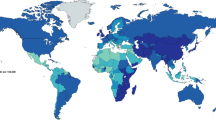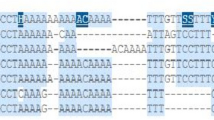Abstract
Glutathione S-transferases (GSTs) play important roles in the detoxification of electrophilic carcinogens, and GSTM1 null genotype is associated with the dysfunction of GSTs. Previous studies investigating the association between GSTM1 null genotype and risk of esophageal carcinoma in Chinese provided inconsistent findings. To provide a more precise estimation on the association between GSTM1 null genotype and risk of esophageal carcinoma in Chinese population, a meta-analysis was performed. Eligible studies were searched in PubMed, Embase, and China National Knowledge Infrastructure databases. Odds ratio (OR) with the corresponding 95 % confidence interval (95 %CI) was used to assess the association. A total of 18 case–control studies involving 1,947 cases and 3,506 controls were finally included in the meta-analysis. Meta-analysis of those 18 studies showed that GSTM1 null genotype was associated with an increased risk of esophageal carcinoma in Chinese (random effect model OR = 1.49, 95 %CI = 1.11–2.00, P = 0.008). The findings from cumulative meta-analysis showed that the association was more obvious as the data increased by publication year. There was no risk of publication bias in the meta-analysis. Therefore, the findings from our meta-analysis provide a strong evidence for the association between GSTM1 null genotype and risk of esophageal carcinoma in Chinese population, and GSTM1 null genotype contributes to increased risk of esophageal carcinoma in Chinese.



Similar content being viewed by others
References
Lao-Sirieix P, Fitzgerald RC. Screening for oesophageal cancer. Nat Rev Clin Oncol. 2012;9:278–87.
Wheeler JB, Reed CE. Epidemiology of esophageal cancer. Surg Clin North Am. 2012;92:1077–87.
Denlinger CE, Thompson RK. Molecular basis of esophageal cancer development and progression. Surg Clin North Am. 2012;92:1089–103.
Bennett C, Vakil N, Bergman J, Harrison R, Odze R, Vieth M, et al. Consensus statements for management of barrett's dysplasia and early-stage esophageal adenocarcinoma, based on a delphi process. Gastroenterology. 2012;143:336–46.
Tejani MA, Burtness BA. Multi-modality therapy for cancer of the esophagus and ge junction. Curr Treat Options in Oncol. 2012;13:390–402.
Di Pietro G, Magno LA, Rios-Santos F. Glutathione s-transferases: an overview in cancer research. Expert Opin Drug Metab Toxicol. 2010;6:153–70.
Ginsberg G, Smolenski S, Hattis D, Guyton KZ, Johns DO, Sonawane B. Genetic polymorphism in glutathione transferases (GST): population distribution of GSTM1, T1, and P1 conjugating activity. J Toxicol Environ Health B Crit Rev. 2009;12:389–439.
Jancova P, Anzenbacher P, Anzenbacherova E. Phase II drug metabolizing enzymes. Biomed Pap Med Fac Univ Palacky Olomouc Czech Repub. 2010;154:103–16.
Wang B, Huang G, Wang D, Li A, Xu Z, Dong R, et al. Null genotypes of GSTM1 and GSTT1 contribute to hepatocellular carcinoma risk: evidence from an updated meta-analysis. J Hepatol. 2010;53:508–18.
Zhang Y, Liu C. The interaction between smoking and GSTM1 variant on lung cancer in the Chinese population. Tumour Biol. 2013;34:395–401.
Lin DX, Tang YM, Peng Q, Lu SX, Ambrosone CB, Kadlubar FF. Susceptibility to esophageal cancer and genetic polymorphisms in glutathione S-transferases T1, P1, and M1 and cytochrome P450 2E1. Cancer Epidemiol Biomarkers Prev. 1998;7:1013–8.
Tan W, Song N, Wang GQ, Liu Q, Tang HJ, Kadlubar FF, et al. Impact of genetic polymorphisms in cytochrome p450 2e1 and glutathione S-transferases M1, T1, and P1 on susceptibility to esophageal cancer among high-risk individuals in China. Cancer Epidemiol Biomarkers Prev. 2000;9:551–6.
Gao CM, Takezaki T, Wu JZ, Li ZY, Liu YT, Li SP, et al. Glutathione-S-transferases M1 (GSTM1) and GSTT1 genotype, smoking, consumption of alcohol and tea and risk of esophageal and stomach cancers: a case–control study of a high-incidence area in Jiangsu Province, China. Cancer Lett. 2002;188:95–102.
Roth MJ, Abnet CC, Johnson LL, Mark SD, Dong ZW, Taylor PR, et al. Polymorphic variation of Cyp1A1 is associated with the risk of gastric cardia cancer: a prospective case-cohort study of cytochrome P-450 1A1 and GST enzymes. Cancer Causes Control. 2004;15:1077–83.
Wang AH, Sun CS, Li LS, Huang JY, Chen QS, Xu DZ. Genetic susceptibility and environmental factors of esophageal cancer in Xi'an. World J Gastroenterol. 2004;10:940–4.
Lu XM, Zhang YM, Lin RY, Arzi G, Wang X, Zhang YL, et al. Relationship between genetic polymorphisms of metabolizing enzymes CYP2E1, GSTM1 and Kazakh's esophageal squamous cell cancer in Xinjiang, China. World J Gastroenterol. 2005;11:3651–4.
Dong C, Wu J, Jin Y, Zhang J. Correlation between genetic polymorphism of CYP2E1, GSTM1 and esophageal cancer in Gansu. Chin J Gastroenterol Hepatol. 2007;16:115–8.
Liu R, Yin L, Pu Y, Li Y, Liang G, Zhang J, et al. Functional alterations in the glutathione S-transferase family associated with enhanced occurrence of esophageal carcinoma in China. J Toxicol Environ Health A. 2010;73:471–82.
Higgins JP, Thompson SG, Deeks JJ, Altman DG. Measuring inconsistency in meta-analyses. BMJ. 2003;327:557–60.
DerSimonian R, Laird N. Meta-analysis in clinical trials. Control Clin Trials. 1986;7:177–88.
Mantel N, Haenszel W. Statistical aspects of the analysis of data from retrospective studies of disease. J Natl Cancer Inst. 1959;22:719–48.
Egger M, Smith GD, Schneider M, Minder C. Bias in meta-analysis detected by a simple, graphical test. BMJ. 1997;315:629–34.
Shao G, Su Y, Huang G, Wen B. Relationship between CYP1A1, GSTM1 genetic polymorphisms and susceptibility to esophageal squamous cell carcinoma. Zhonghua Liu Xing Bing Xue Za Zhi. 2000;21:420–3.
Shi Y, Zhou X, Zhou Y, Ren S. Analysis of CYP2E1, GSTM1 genetic polymorphisms in relation to human lung cancer and esophageal carcinoma. J Huazhong Univ Sci Technol (Heal Sci). 2002;31:14–7.
Wang LD, Zheng S, Liu B, Zhou JX, Li YJ, Li JX. CYP1A1, GSTS and MEH polymorphisms and susceptibility to esophageal carcinoma: study of population from a high- incidence area in north China. World J Gastroenterol. 2003;9:1394–7.
Han Y, Feng X, Li P, Niu Z. Case–control study on relationship of CYP1A1 and GSTM1 polymorphisms and susceptibility to esophageal squamous carcinoma. Chin J Public Health. 2005;21:3–6.
Yi L, Pu Y, Song Y, Hu X, Liu Y, Kai H. Polymorphisms of susceptible genes for esophageal cancer risk in Huaian population in Jiangsu Province. Tumor. 2005;25:357–61.
Lu XM, Yang T, Xu SY, Wen H, Wang X, Ren ZH, et al. Glutathione-S-transferase M1 polymorphisms on the susceptibility to esophageal cancer among three Chinese minorities: Kazakh, Tajik and Uygur. World J Gastroenterol. 2006;12:7758–61.
Li Y, Zhu WC, Lin Z, Wu H, Ye Z. Correlation between smoking and the polymorphism of gene GSTM1 and esophageal carcinoma. Heilongjiang Med J. 2008;32:18–20.
Ji R, Wu J, Zhou Y, Zhang B, Zhang Z, Yang Z. Relationship between CYP1A1, GSTM1 and GSTT1 genetic polymorphisms and susceptibility of esophageal cancer in Wuwei, Gansu Province. J Lanzhou Univ (Med Sci). 2010;36:29–34.
Chen Y, Zhang H, Yi D, Wang H, Wang Y, Deng Y, Ma Y: Relationship between GSTM1 gene polymorphism and interaction of gene environment and susceptibility of esophageal cancer. Modern Preventive Medicine 2012;39:1235–9.
Gao P, Qian Y, Ye X, Ge J, Zang D, Xu W. Study of CTPIA1, GSTT1, GSTM1 polymorphisms and susceptibility on esophageal carcinoma in Ningxia Hui nationality. Ningxia Med J. 2012;34:196–9.
Zheng S, Vuitton L, Sheyhidin I, Vuitton DA, Zhang Y, Lu X. Northwestern China: a place to learn more on oesophageal cancer. Part two: gene alterations and polymorphisms. Eur J Gastroenterol Hepatol. 2011;23:1087–99.
Jana S, Mandlekar S. Role of phase II drug metabolizing enzymes in cancer chemoprevention. Curr Drug Metab. 2009;10:595–616.
Conflicts of interest
None
Author information
Authors and Affiliations
Corresponding author
Additional information
Shan Zhong and Wei Zhao contributed equally to this work.
Rights and permissions
About this article
Cite this article
Zhong, S., Zhao, W., Lu, C. et al. Glutathione S-transferase M1 null genotype contributes to increased risk of esophageal carcinoma in Chinese population. Tumor Biol. 34, 2403–2407 (2013). https://doi.org/10.1007/s13277-013-0790-3
Received:
Accepted:
Published:
Issue Date:
DOI: https://doi.org/10.1007/s13277-013-0790-3




